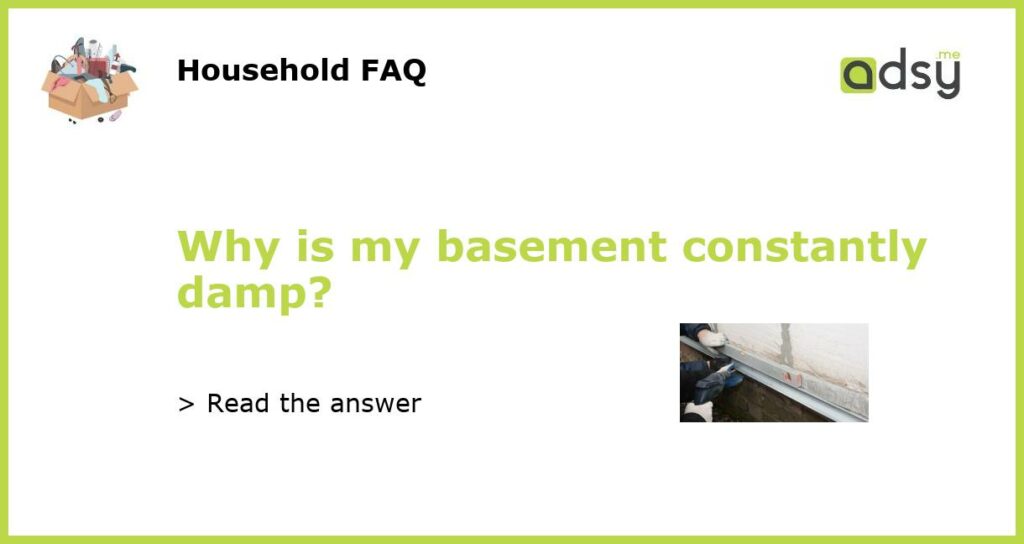Common Causes of a Damp Basement
Having a damp basement can be a frustrating problem for homeowners. Not only does it create an unpleasant environment, but it can also lead to mold growth and structural damage if left unaddressed. If you find that your basement is constantly damp, there could be several reasons for this issue. In this article, we will explore some of the common causes of a damp basement.
Poor Drainage and Grading
One of the most common reasons for a damp basement is poor drainage and grading around the foundation of your home. If the soil around your house is not properly graded or slopes towards the foundation, water will naturally flow towards the basement, leading to dampness and potential water leaks. Additionally, if your home does not have adequate gutters or downspouts, rainwater may collect around the foundation and seep into the basement.
Leaking Foundation
A leaking foundation is another major cause of a damp basement. Over time, foundations can develop cracks or gaps that allow water to enter. This can happen due to the natural settling of the house or as a result of hydrostatic pressure from the surrounding soil. If you notice water seeping in through cracks in the walls or floor of your basement, it is likely that your foundation is leaking and needs to be repaired.
Poor Ventilation and Insulation
Inadequate ventilation and insulation can contribute to dampness in the basement. Without proper air circulation, humidity levels can rise, leading to condensation and damp conditions. Additionally, inadequate insulation can cause cold surfaces, which can attract moisture from the air and result in dampness. Improving ventilation and adding insulation to your basement can help prevent excess moisture and maintain a dry environment.
Gutter and Downspout Issues
If your gutters and downspouts are not functioning properly, it can lead to water accumulation around the foundation, which can then seep into the basement. Clogged gutters can prevent water from flowing away from the house, causing it to overflow and pool around the foundation. Similarly, if the downspouts are not directing water away from the house or are too close to the foundation, it can lead to water infiltration. Regular maintenance of gutters and downspouts, such as cleaning and checking for proper alignment, can help prevent water-related issues in the basement.
Inadequate Waterproofing
Finally, inadequate waterproofing measures in the basement can contribute to dampness. If your basement walls or floor were not properly sealed or waterproofed during construction, they may be susceptible to water infiltration. Similarly, older homes may have outdated waterproofing systems that have become less effective over time. Investing in professional waterproofing solutions, such as installing a sump pump or applying a waterproofing membrane, can help keep your basement dry and free from dampness.
In conclusion, there are several common causes of a damp basement, including poor drainage and grading, leaking foundations, poor ventilation and insulation, gutter and downspout issues, and inadequate waterproofing. If you are experiencing constant dampness in your basement, it is important to identify the underlying cause and take appropriate measures to address the issue. Consulting with a professional waterproofing or foundation repair specialist can help you determine the best course of action for your specific situation.

